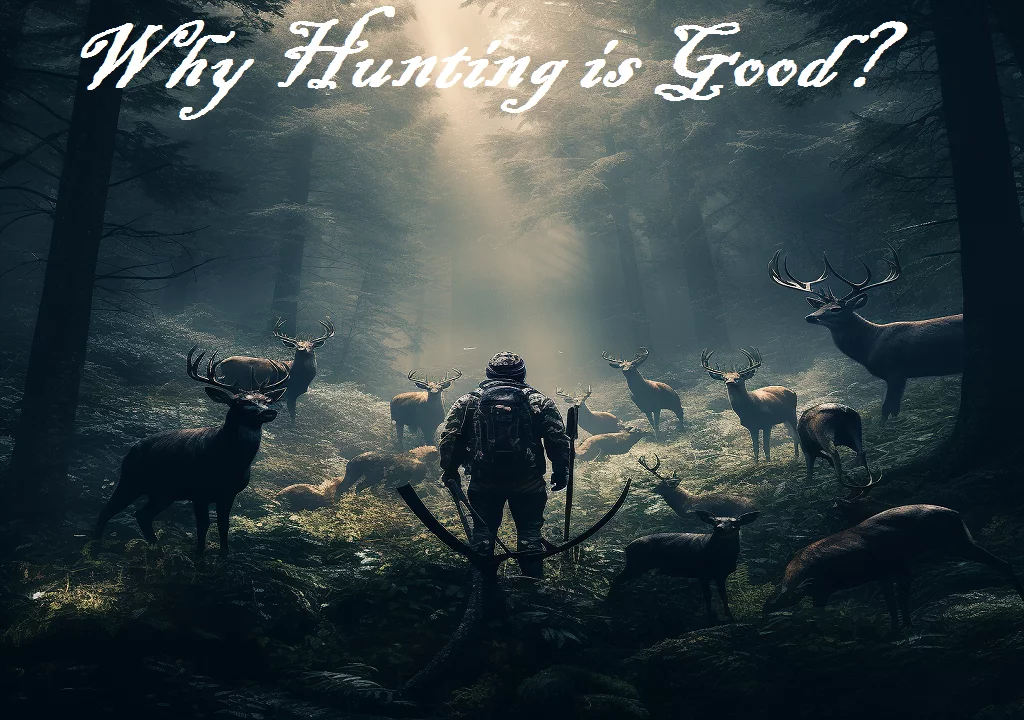
Hunting has been woven into the very fabric of human evolution and survival. Today, with industrialization and urban sprawl, its role has been questioned and sometimes dismissed. But is it fair to do so without acknowledging its multifaceted benefits?
Table of Contents
In regions where natural predators like wolves and mountain lions have dwindled due to factors like urbanization, deer and other prey often overpopulate. What’s the fallout? An ecosystem out of balance. Excessive grazing leads to degraded land, making it difficult for other animals and vegetation to thrive. Hunting offers a means of controlling these populations.
When certain species overpopulate, it can lead to the degradation of habitats. Overgrazing, for example, can cause soil erosion and affect water sources. By controlling populations through hunting, habitats can be preserved and restored.
Believe it or not, hunters are some of the biggest contributors to wildlife conservation. Through the purchase of hunting licenses, permits, and taxes on gear, billions are funneled into conservation projects. And this isn’t about protecting just game animals; it covers the entire ecosystem.
The debate between store-bought meat and wild game tips in favor of the latter. Wild game, being free of antibiotics, hormones, and commercial feed, is leaner and richer in essential nutrients. It’s truly nature’s organic offering.
Industrial farming often involves cramped spaces, unnatural diets, and premature slaughter. Hunting, by contrast, involves animals that have lived freely, consumed a natural diet, and often have longer lifespans. Which meat journey sits better with your conscience?
The modern disconnect from our food sources is alarming. Hunting bridges this gap, making individuals more cognizant of the food they consume and the process it entails.
Beyond the solitary image of a hunter in the woods, there’s a buzzing industry. Manufacturers of hunting gear, local guides, outfitters, and even hunting education professionals all owe their livelihood to hunting.
Consequently, areas recognized for their hunting prospects frequently experience a surge in local tourism. Not only do lodges benefit, but local dining establishments also thrive, leading to a notable economic uplift due to the influx of hunters.
The ripple effect of hunting touches local communities too. Funds from hunting licenses often go back into local projects, enhancing infrastructure and community facilities.
For many communities, hunting is more than a sport. It’s a generational tradition, carrying stories, skills, and values from one generation to the next.
Hunting isn’t merely about taking a shot. Firstly, it instills patience in individuals. Furthermore, it hones observation skills. Lastly, it imparts a profound understanding of nature. Consequently, doesn’t this offer a holistic approach to learning?
In the midst of nature, while tracking an animal, many hunters often experience a deep spiritual connection. Moreover, this intimate bond with nature engenders a profound appreciation for life. Consequently, they develop a heightened sense of the interconnectedness of all beings.
Maneuvering through diverse terrains, tracking, and even the act of setting up camp offers physical challenges that are both rigorous and rewarding.
Nature has a calming effect. The serenity, combined with the focus hunting requires, often serves as an antidote to the stressors of modern life.
From tracking skills, understanding weather patterns, to even basic first aid – hunting is a comprehensive lesson in survival.
Hunting, when approached with respect, knowledge, and responsibility, offers manifold benefits to individuals, communities, and the environment. Like any tool, it’s the user’s intent and understanding that defines its impact.
Gun owners regularly hear that maintaining their firearm is essential, but many still wonder exactly…
When handling any firearm whether it’s a hunting rifle, shotgun, handgun, or even a crossbow—reliability…
Jerking the trigger is one of the most common accuracy problems pistol shooters face. Whether…
Keeping your handgun clean is one of the most important responsibilities you have as a…
Archery has evolved dramatically over thousands of years, yet one debate continues to spark curiosity…
When you’re setting up a long-range rifle scope, one of the most important decisions you’ll…
This website uses cookies.